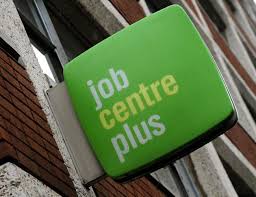
Universal Credit (UC) is being rolled out in Colchester in July amid a huge amount of concern, with over two hundred faith groups, mental health organizations, not-for-profits and pressure groups calling for a halt this winter to the national roll-out.
Last week the government lost an important case in the Supreme Court. The Government acted 'unlawfully' in denying two men a 'top up' on their Universal Credit claim, to account for their severe disability, decided Supreme Court Judge Mr. Justice Lewis.
Following this blow, the National Audit Office published a particularly damning report on Friday. Instead of saving the taxpayer money, Universal Credit was costing four times more to administer per claim than projected by ministers and failing on a promise it would help claimants to work. At the same time, UC was plunging claimants into debt and into rent arrears leading to evictions and job losses. What is clear is that many people have died because of government welfare policies.
Homelessness has increased by 43% in one year under the current government and there is a reluctance by some landlords to let to the unwaged, further exacerbating the homelessness problem.
The idea of simplifying the benefits system has in fact been around since the mid-seventies. The idea of UC is that one single monthly payment would mirror the world of work. Currently, Jobseekers Allowance claimants can work up-to sixteen hours a week then after that their benefits are stopped. This idea with UC was that you would be ‘better off in work’ and your Universal Credit would adjust to fit the claimant’s circumstances.
Firstly, what is Universal Credit and why has this ambitious idea been hit by problem after problem since its launch by Iain Duncan Smith in the very early days of the Coalition? Universal Credit replaces six means-tested benefits:
• Income Support
• Income-based Jobseeker’s Allowance
• Income-related Employment and Support Allowance
• Housing Benefit
• Child Tax Credit
• Working Tax Credit
On the original timetable, all eight million in and out of work households in the UK – most of them in work - that currently receive working tax credits, child tax credits, housing benefits, income support, means-tested versions of the jobseeker’s allowance and employment and support allowance were meant to be on the new ‘universal’ benefit by October 2017. In fact, just 10% of claimants nationally are claiming Universal Credit and initially only new claims in Colchester will be on Universal Credit.
The national debate centred around the fact that new claimants had to wait six weeks to get paid, though in practice this can be much longer, 12 weeks in some cases and this has been reduced officially to five weeks. Under Universal Credit, there is a formal waiting period of one week with no money ‘the waiting period’ followed by four weeks till you are paid. In practice, many of those earning less than £10,000 a year is in fact paid weekly. You can now ask for an advance, thereby putting yourself in debt.
Little noticed is the fact that the amount of capital you can hold to make a claim has fallen from £16 000 under Jobseekers Allowance to £6 000 for Universal Credit. If you have a windfall or a redundancy payment which you hope to have saved for a rainy day you might find that you are spending this money having been rejected for UC.
The rules around self-employment are simply mind-boggling and you have one year to make your business profitable to support yourself - a criterion that was dismissed as ridiculous by the accountancy profession. If having failed to achieve this, then you will be put back to being required to do job searching 35 hours a week to comply with your claimant commitment - only allowed another chance to be your own boss in five years’ time. An odd policy for the ‘party of business’. Since 2008 48% of new jobs have been self-employed.
When Housing Benefit was paid separately only your Jobseekers Allowance could be sanctioned. However, under UC the money you need to pay the rent could be stopped. There are hardship payments, 50% of benefits, but these are a loan and discretionary.
For working families, the news is grim. The Taper rate - the amount of Universal Credit withdrawn as earnings increase - is greater than under the current tax credits system. Now a second earner loses 41p for each £1 they earn but with the Universal Credit, this increases to 63p for every £1. This means that someone earning £5,000 a year would see their income fall from £2,950 under tax credits to £1,850 under the Universal Credit leaving families £50 a week worse off.
Claimants have complained about their frustration of trying to resolve their issues online. People’s lives are complicated and not everyone, especially those in rural areas, has access to ITC.
UC is a wonderful sounding concept on paper, yet it in practice some would argue it has been a catastrophe. Universal Credit is a flagship government policy - it is questionable whether it has helped people in its current form and it certainly has not even achieved its real objective - that of saving the government money.

ABC Comment. Is Universal Credit a good thing? Or should the roll-out be stopped.

1 comment
Leave a comment
Make sure you enter all the required information, indicated by an asterisk (*). HTML code is not allowed.
Join
FREE
Here










